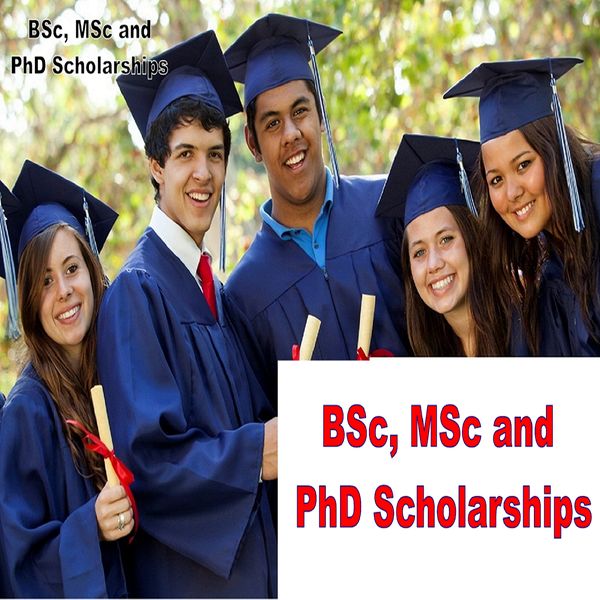Eligibility Criteria and Requirements for Erasmus Mundus Scholarship 2024/2025
Are you dreaming of securing a fully funded Erasmus Mundus scholarship? Then this comprehensive article is specifically for you as we have researched everything you need to know about securing this scholarship opportunity.
The Erasmus Mundus Program is a prestigious initiative funded by the European Union to promote higher education worldwide. It offers scholarships to outstanding students and scholars willing to undertake joint or double degree programs offered by consortia of top-ranked European universities.
Understanding the detailed eligibility criteria and application requirements is crucial for any aspiring applicant to make an informed decision regarding applying for an Erasmus Mundus scholarship. This blog post provides a comprehensive overview of the various eligibility requirements for the 2024/2025 scholarship cycle.
What are the Academic Eligibility Criteria for the Erasmus Mundus Scholarship?
The basic academic eligibility criterion for an Erasmus Mundus scholarship is that applicants must hold a first higher education degree or equivalent qualification by the time of their scholarship starting date. For joint programs, candidates must have completed their first cycle of tertiary education and be enrolled in the second cycle. For double degree programs, candidates are required to be enrolled in the first cycle. The minimum qualification level may be completed secondary education in certain target regions or specific actions. It is essential for applicants to verify and fulfill the academic entry requirements for their program of interest.
Geographic Eligibility/ Is Nigeria eligible for the Erasmus Mundus Scholarship?
Erasmus Mundus scholarship eligibility is dependent on the geographic location or citizenship status of applicants. Citizens and residents of EU member states are generally not eligible to apply. Candidates must be nationals of, or have a refugee status in, a country other than those participating in the Erasmus+ Program. Permanent residents of EU countries may be eligible if they do not hold the nationality of an EU member state. Eligible third-country nationals living in any country worldwide like Nigeria can apply for this scholarship.
What is the Age Eligibility required for the Erasmus Scholarship?
The maximum age limit for Erasmus Mundus scholarship eligibility is normally set at 40 years at the time of application. However, for certain target regions or specific actions, the upper age restriction may be relaxed or waived. Applicants are advised to check their program’s specific age requirements on the official website.
Language Proficiency Requirements
Since most Erasmus Mundus programs are taught in English, a good working knowledge of the English language is mandatory for scholarship eligibility. The required minimum English language certificate levels typically correspond to B2 on the Common European Framework of Reference for Languages (CEFR). Some programs may demand higher English language competency at the C1 level or above. Besides English, applicants may need to demonstrate adequate language skills in other relevant languages of instruction as well.
Financial Eligibility
Erasmus Mundus scholarships are meant to promote international student mobility by helping with the living and tuition costs. To be financially eligible, candidates should demonstrate that they do not have sufficient financial means or funding sources to undertake the program without an EU grant. Applicants must provide proof of their own or their family’s annual income being below a certain threshold set by the European Commission. Full self-funded candidates normally do not qualify for Erasmus Mundus funding.
What are the Application Requirements?
To apply for an Erasmus Mundus scholarship, candidates must identify a suitable joint or double degree program consortium participating in the specific call for proposals. They then need to apply through the online application platform along with submitting the required supporting documents before the given deadline.
Common mandatory documents include academic transcripts, language certificates, statement of purpose, reference letters, copies of passport or ID, proof of means, and degree certificates if already conferred. Shortlisted candidates may additionally need to attend interviews as part of the selection process for certain programs.
Selection Criteria
The final evaluation and selection of Erasmus Mundus scholarship candidates is carried out by designated selection panels appointed by the individual consortia. Important criteria considered include the academic merit and research potential of applicants, the relevance of their background to the study project, their language proficiency, motivation and commitment to international cooperation, and well need for financial support.
While academic excellence is paramount, preference may be given to disadvantaged students and those from underrepresented target regions based on geographic priorities. A good balance of qualifications from different countries and regions is sought.
Rights and Obligations
Students awarded an Erasmus Mundus scholarship have certain rights like tuition waiver, monthly living stipend, travel allowance, insurance coverage, and optional extensions. However, grantees also assume obligations such as following the academic regulations, progressing satisfactorily, participating in project activities and mobility tracks as agreed, not undertaking any paid occupational activity, and abiding by the funding terms and conditions.
Timely submission of progress and final reports is mandatory to maintain scholarship eligibility throughout the course duration. Rights and obligations are formally outlined in the grant agreement signed with the coordinating institution.
conclusion,
Applying for an Erasmus Mundus scholarship is highly competitive with only the most qualified candidates being selected each year. Careful consideration of all eligibility requirements regarding academic qualifications, nationality or residency status, language skills, age limit and financial means is essential for interested applicants to determine if they meet the eligibility criteria for the programs and target scholarships in the upcoming calls.
Satisfying the diverse eligibility criteria and mandatory application procedures increases one’s chances of securing this prestigious EU-funded international mobility opportunity.



